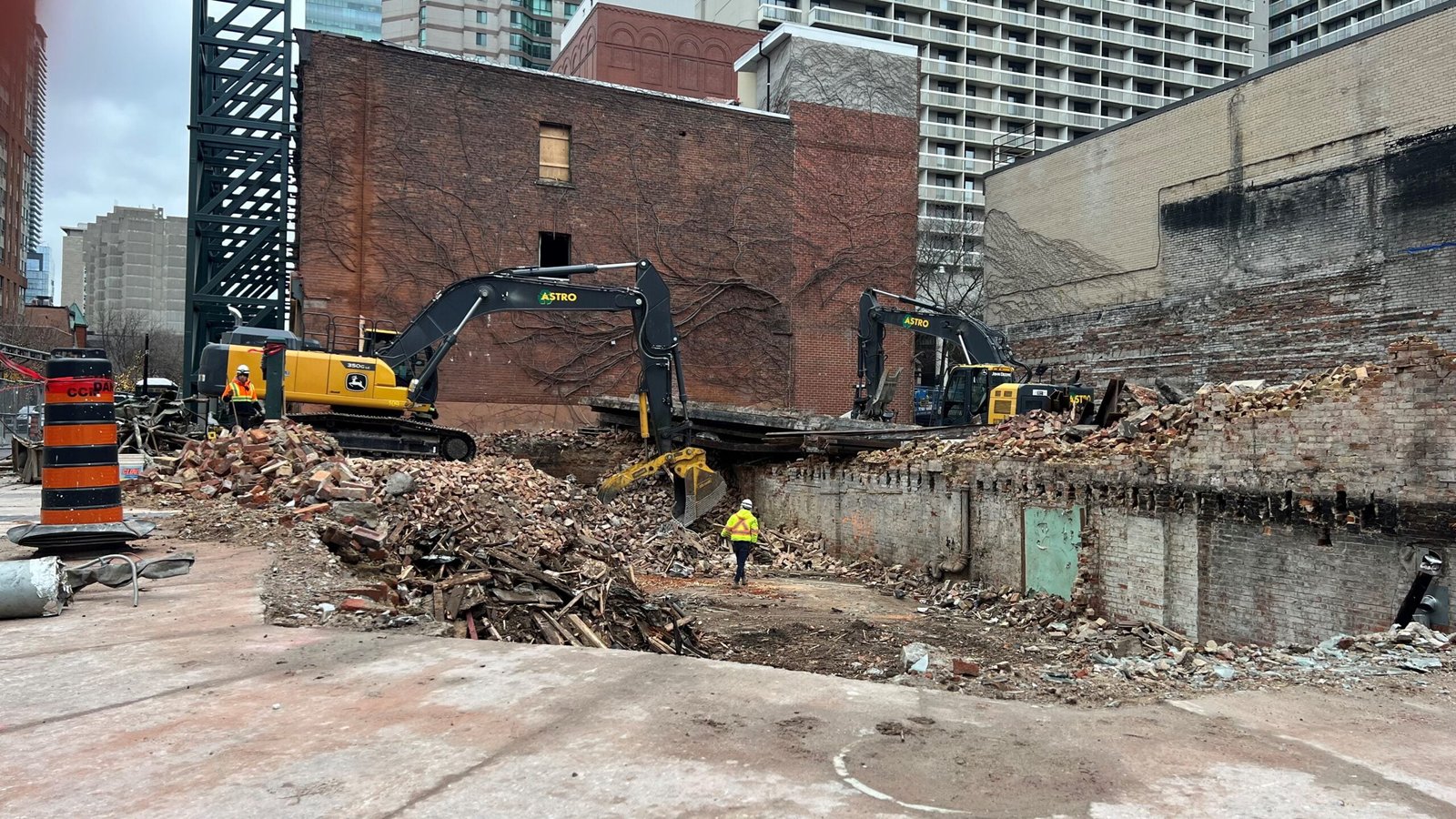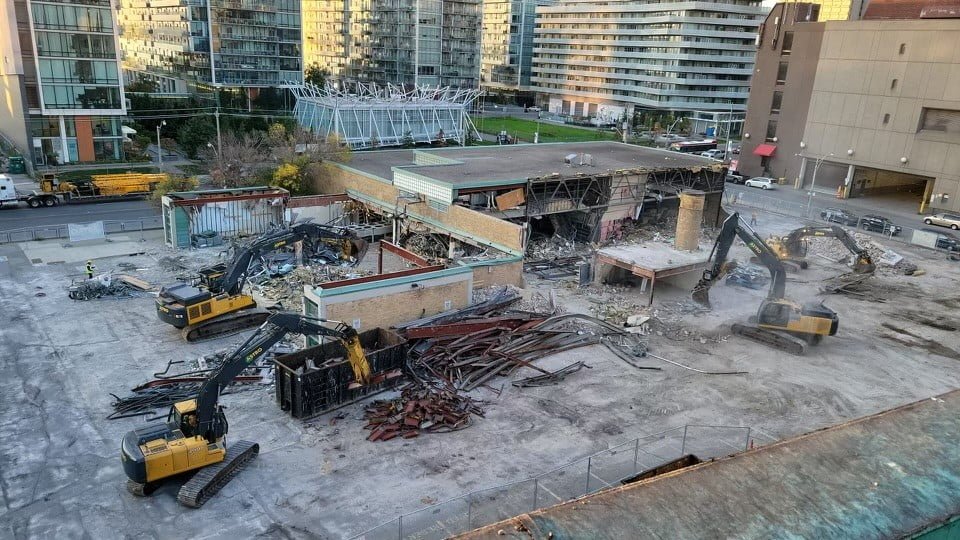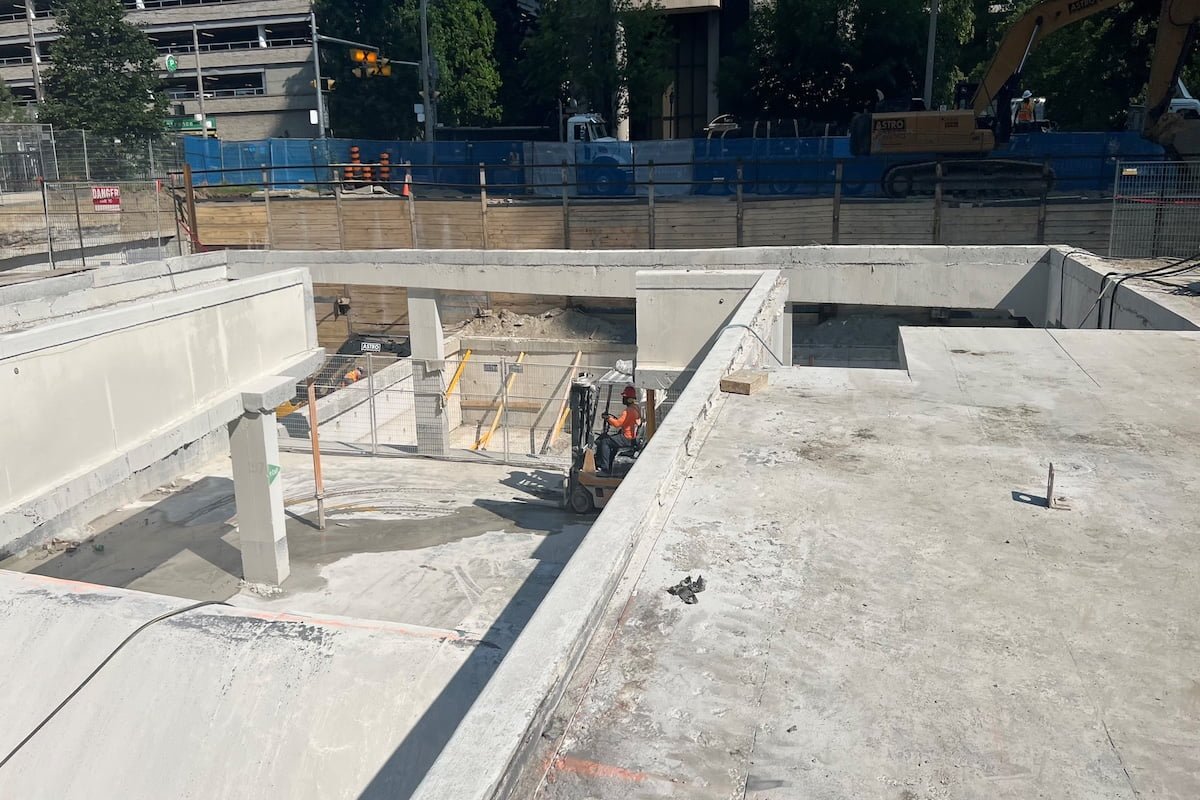Commercial Demolition
Discover How Astro Environmental Can Help You With Safe, Efficient, and Professional Demolition
What Is Commercial Demolition?
Commercial demolition is the process of dismantling or tearing down commercial buildings or structures. It involves the use of heavy machinery, such as excavators and bulldozers, to safely and efficiently remove the structure and clear the site for future development or repurposing. Commercial demolition may be necessary for various reasons, including outdated or unsafe buildings, renovation or expansion projects, or redevelopment of the land. It requires careful planning, adherence to safety regulations, and proper disposal of debris and hazardous materials.
What Is The Commercial Demolition Process?
The commercial demolition process involves the systematic dismantling and removal of structures, such as buildings, warehouses, factories, or other commercial properties. The process includes steps such as pre-demolition assessment, obtaining permits, removing hazardous materials, disconnecting utilities, salvaging valuable materials, conducting the demolition using various methods, managing waste, clearing and grading the site, and completing final inspections and documentation. It is important to hire an experienced and licensed demolition contractor to ensure safety, efficiency, and compliance with regulations.

When Is Commercial Demolition Necessary?

Heritage-sensitive demolition is necessary when a building or structure holds significant historical, cultural, or architectural value that should be preserved. Situations where heritage-sensitive demolition may be required include unsafe buildings, conservation or redevelopment projects, urban planning and infrastructure development, and irreparable damage from natural disasters. However, it should be considered as a last resort after exploring all other options for preservation or adaptive reuse. Consultation with heritage experts and community stakeholders is important to minimize the loss of cultural or historical significance.
What Are Important Considerations?
Important considerations for heritage-sensitive demolition include understanding the historical significance of the building, familiarizing oneself with heritage regulations, engaging stakeholders, documenting the site before demolition, salvaging and reusing elements, implementing mitigative measures, reinterpreting and commemorating the site, considering sustainable practices, involving public consultation, and conducting post-demolition monitoring. These considerations aim to preserve the historical value and minimize the impact of demolition on the surrounding environment and community.
